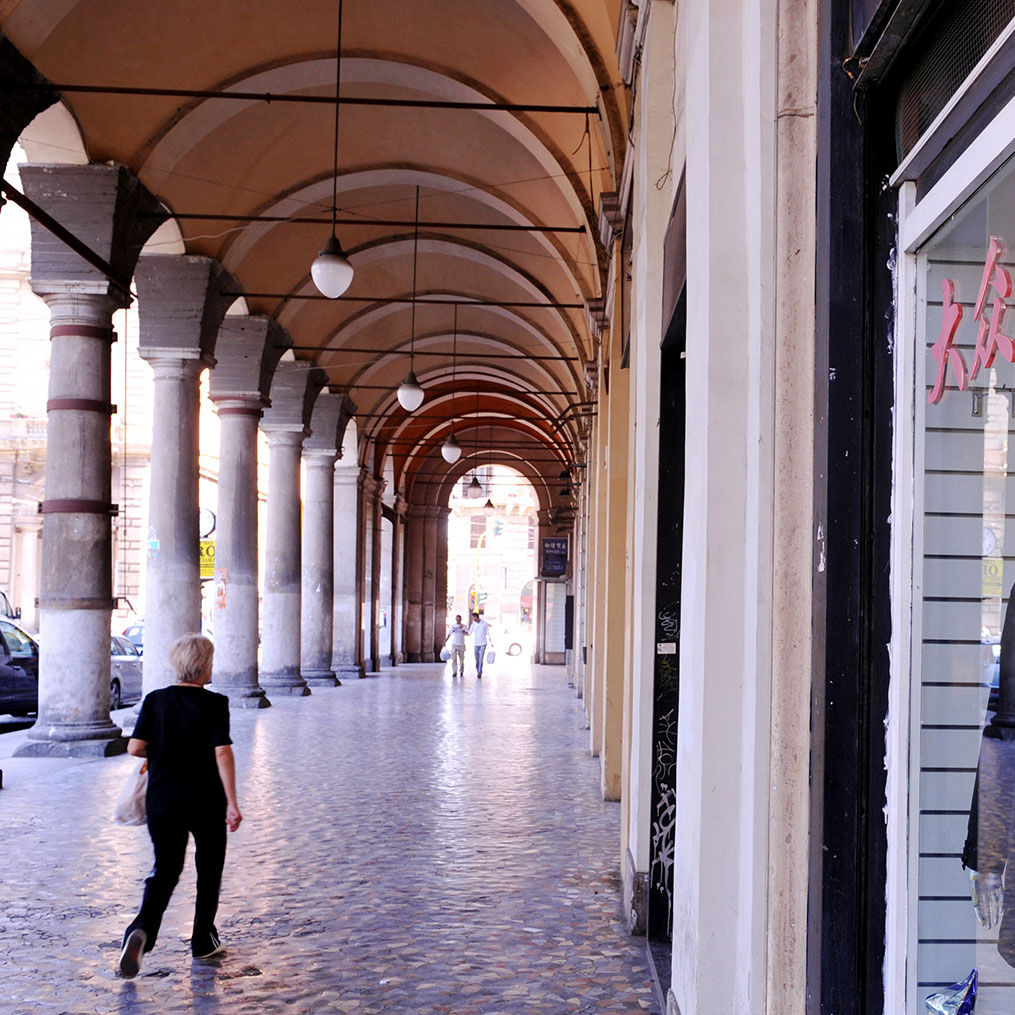ROME PIAZZA DANTE
All languages lead to Rome
Piazza Vittorio Emanuele is the multicultural heart of Rome, just take a walk here and you will understand. Shop windows display products both in Bengali and Italian, and if someone gives you a flier, you can bet it’s in Turkmen or in Persian. Here you can read a Chinese newspaper, printed in the neighbourhood and widely-circulated, and if you want to try ethnic food there are menus from all over the world. Even in the seventies this historic neighbourhood (named Esquilino after the Equites, the lower of the two aristocratic classes of ancient Rome) was a main passage for migratory flows due to its proximity to Termini station. Since the nineties, it has seen a residential boom, thanks to different communities that have become an integral part of the socio-economic fabric; bringing with them an increasingly multiethnic food market that was once located in the square’s gardens and is now indoors. In 2012, of the 130,000 area residents, over 45,000 came from other countries.
The most numerous communities in the neighbourhood are Bengali, Romanian, Chinese and Filipino. There is also a strong presence of immigrants from Eritrea, Somalia and Afghanistan. This makes it easy to see why there has been such an explosion of new idioms in Piazza Dante, the nearby square dedicated to the father of the Italian language, where a Post Office now stands. It is a place that has become a reference point for productive scenarios in this ‘new Italy’. Scenarios that are often faced with the obstacle of a less-than-perfect knowledge of Italian. “To move beyond this language barrier, we frequently do much more than just help them pay a postal order,” Ralph V. D. Abe, 30, says with a smile. Abe is a Post Office employee and native of the Philippines. “In a single moment, one of us must give advice to his or her fellow citizen for a residency permit, often sharing our own personal experience”. In fact, Ralph is not the only foreign-born employee at this office. “While working on a postal order or doing some other operation with one of the many members of the local Chinese community, it often happens that the conversation switches to everyday needs, especially with those less Italian than I am,” confirms Abe’s Chinese colleague Dan Wu, 31.
“Having foreign colleagues, is a huge help here,” says deputy manager Silvia Curia, 33, born in Rome. “Dealing with cultural differences, as we do in our Post Office, helps us to integrate and is an encouragement to be open-minded. It’s very important that clients who speak Italian poorly, or don’t speak Italian at all, can relate to someone behind the counter who speaks the same language. This aspect is also crucial because every culture has a different way to handle particular situations.” “In many cases, it is a matter of trust,” explains Irenea Lascano, 39, from the Philippines. “For example, there is a woman from my country who is always here because she can talk to us in her native language. Once, our conversation was about an insurance policy offered by Poste Italiane to foreign people and suddenly she told me that several employees in another Post Office had offered her the very same policy. But she didn’t understand what it was because of the language gap and not wanting to seem rude, she never asked for further explanation. Thanks to us, she has now signed up for the policy, which is in high demanded by the Philippine community.” “The Chinese community,” explains Dan Wu, “prefers services such as Postepay and MoneyGram. A major difficulty for those who don’t master Italian is how to fill out the forms, and our help needs to be ongoing in this matter.” There’s no room for bureaucratic frigidity. “That’s right,” Ralph smiles, “if I had to describe this place in just one word I would say ‘cozy’.” “I’d say colourful,” adds Irenea. “Don’t forget dynamic,” Dan adds.

